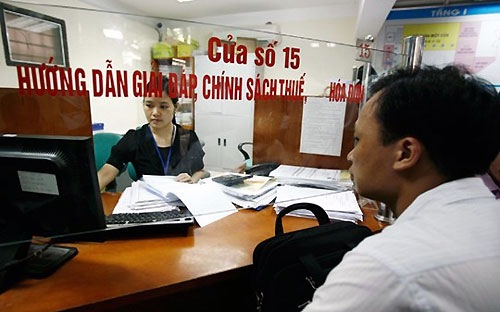Share premium is a term often mentioned in a company's financial reports.

What are regulations on share premium in enterprises in Vietnam? (Illustrative Image)
1. What is share premium?
share premium, also known as premium surplus in joint-stock companies, is the difference between the par value of shares and the actual issue price.
share premium = (Issue Price – Par Value) x Number of Shares Issued
Example: Company A issues 100,000 shares, each with a par value of 10,000 VND to raise 1 billion VND. Due to market demand, Company A sells each share for 50,000 VND, raising 5 billion VND. The difference of 4 billion VND between the actual issue price and the par value of the shares is called share premium.
2. Regulations on share premium in Vietnam
According to Circular 19/2003/TT-BTC, it is necessary to note the following contents regarding share premium:
- Increases due to the purchase and sale of treasury shares, and the difference due to the issuance of additional shares at a price higher than the par value must be accounted for in the share premium account and not in the financial income of the enterprise.
- These surplus amounts are not subject to corporate income tax or value-added tax.
- In cases where the sale price of treasury shares is lower than the purchase price, or the issuance price of new shares is lower than the par value, this deficit cannot be accounted for as an expense, cannot be covered by pre-tax profits, but must be offset by the share premium. If the share premium is insufficient, it must be covered by post-tax profits and the company's funds.
Additionally, the charter capital of a joint-stock company is adjusted upward in cases where the share premium is transferred to supplement the charter capital. The transfer of the share premium to supplement the charter capital of a joint-stock company must comply with the following conditions:
- For the difference between the sale price and the purchase price of treasury shares, the company can use the entire difference to increase the charter capital.
In cases where not all treasury shares have been sold, the company can only use the surplus difference between the share premium and the total purchase price of unsold treasury shares to increase the charter capital. If the total purchase price of unsold treasury shares is equal to or greater than the share premium, the company cannot adjust the charter capital upward using this source.
- For the difference between the sale price and the par value of shares issued for investment projects, the joint-stock company can only use it to supplement the charter capital after 3 years from the completion of the investment project and its commencement of operation.
For the difference between the sale price and the par value of shares issued to restructure debts or supplement business capital, the joint-stock company can only use it to increase the charter capital 1 year after the end of the issuance period.
Note: The above-mentioned surplus sources will be distributed to shareholders in the form of shares according to each shareholder's ownership ratio.
Thuy Tram
 Article table of contents
Article table of contents





.Medium.png)
.Medium.png)
.Medium.png)
.Medium.png)
